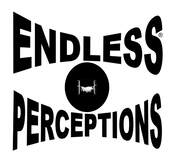Foundation
I decided not to review this book until I finished reading the trilogy (Foundation, Foundation and Empire, Second Foundation). This is because I was trying to give the entire read a chance. At one point I almost put the book down and I will explain why.
Foundation is about a scientist named Hari Seldon who has surmised that the Galactic Empire would fall and humanity would experience a dark age for 30,000 years. Seldon found a way to shorten that time to 1,000 years as long as his plan was followed. Isaac Asimov ambitiously pulled together this rather long chain of events from previously written short stories and the finished product has its good and not-so-good points. Foundation does have interesting characters (like Seldon) but much of the story has virtually little character development. Instead, Asimov's use of situations like "The Seldon Plan" represents Hari Seldon. By repeatedly bringing the dead scientist's revelations and truths to civilization, the character is brought back to life so that his work can be continued. I find this to be an interesting writing technique but it’s not a true substitute when the need is to understand the man himself. Asimov again does this with others (speak of their accomplishments and its effect) but I would have preferred to know more about key people like Gaal Dornick and Salvor Hardin. I’ve read that the tale was originally published over time in Astounding Science Fiction Magazine, years prior to the story coming together in book form. I guess this explains why the action tends to jump to different characters and time periods as the story is evolving. Unfortunately, as soon as I became invested in an interesting protagonist, another would take his place. As I read on, I tried not to let this bother me. Many of the stories were intriguing (the courtroom scene was one and another was about how effortlessly a planet and its army could be made to shut down). The narration brought me to the edge of my seat but I was disappointed when the focus soon moved to another scenario. This type of writing made it difficult for me since the momentum of the storytelling kept changing. I found myself screaming for more and not getting it. Halfway through the book, the pattern almost made me stop reading. Curiosities concerning the trilogy’s fame made me continue and I'm happy that I did. Regardless of this, Asimov is a fantastically inventive storyteller. The formation of the Psychohistorians, the Encyclopedists and the anticipation of a Second Foundation is complex and well thought out. It’s easy to understand why Asimov is considered the father of literary science fiction. Foundation was published in 1951 and once widely distributed, many standards for writing sci-fi and were set. It becomes obvious that many writers have attempted to replicate Asimov's impressive use of civilization building and historical cause and effect. Overall, I gave Foundation 4 out of 5 stars and recommend that others read it because of its historic significance and also because there was just enough in it to keep the reader interested.
1 Comment
I've read hundreds of fictional books all throughout my life. There are some that are notable, but there are also books that I don't understand. Science-fictional is a genre that will always give me goosebumps; for the genre will always surprise its readers with its twist! I've read "Foundation" by Isaac Asimov, but I honeslty tried to undertstand the whole story as much as I can. I guess, it's too complicated for me that is why I didn't get it!
Reply
Leave a Reply. |

